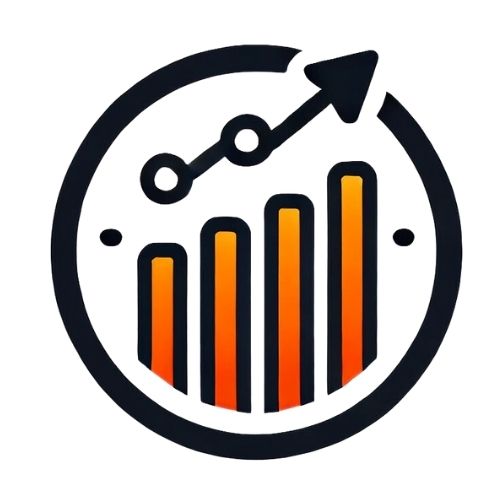
Receiving a 13th cheque or year-end bonus can provide a valuable opportunity to improve your financial position and plan ahead for the year to come. While it may be tempting to use the money for immediate pleasures, allocating it strategically can help you pay off debt, grow your savings, invest for the future, or cover important upcoming expenses. Whether your goal is financial security, personal development, or creating memorable experiences, making intentional choices with this extra income ensures it delivers lasting benefits rather than short-term gratification.
Key Takeaways
- A 13th Cheque Can Be Used Strategically: Directing your bonus towards debt repayment, home loan contributions, investments, or emergency savings can improve long-term financial stability.
- Plan For Key Life Expenses: Allocating funds for January costs, education savings, medical cover, or home maintenance can prevent debt and reduce financial pressure in the year ahead.
- Opportunities For Personal Growth: Part of your bonus can fund career development, a side business, or meaningful charitable giving, offering both financial and personal rewards.
About Arcadia Finance
Apply with ease through Arcadia Finance. Compare offers from 19 trusted NCR-approved lenders, pay no application fees, and enjoy a quick, transparent process built around your needs.
The 13th Cheque or Christmas Bonus
The 13th cheque, often referred to as a Christmas bonus, is generally viewed as a gratuity. This means it is a voluntary payment from an employer to an employee as a gesture of appreciation for consistent good performance or going beyond normal duties. Over time, however, many employees have begun to see the 13th cheque not as a discretionary reward but as a standard entitlement or built-in condition of employment. This shift is evident as job seekers often ask during interviews if a 13th cheque is part of the compensation package.
In practice, this shows that many employees expect to receive a 13th cheque regardless of performance or additional effort. For some, it has become a fixed element of their employment expectations rather than an earned bonus.
Employers therefore have the responsibility to clarify its purpose and structure. In many cases today, organisations have removed the separate payment of the 13th cheque and instead absorbed the value into the employee’s basic monthly salary.

Ways To Spend The 13th Cheque

Pay Off Debt
For those aiming to reduce their financial obligations, there are two main repayment strategies to consider: the avalanche method and the snowball method. Under the avalanche approach, you continue making the minimum required payment on each debt, while directing any extra funds towards the debt with the highest interest rate. In contrast, the snowball method involves making minimum payments across all debts, then prioritising repayment of the smallest balances first, progressing to larger debts once those are cleared. While the avalanche method generally results in paying less interest over time, both approaches can lead to becoming debt-free if applied consistently and with discipline, especially if applying a bulk amount such as a thirteenth cheque.

Pay Extra Into Your Home Loan
Allocating a lump sum to your home loan each December can significantly shorten the repayment period and reduce the total interest you pay by tens of thousands of rands. Given current home loan interest rates, any additional payment directly towards your bond clears the debt faster than leaving the money in a typical savings account. Over time, these extra contributions can remove several years from the repayment term, helping you achieve property ownership sooner.

Invest Your Bonus Money
Using a year-end bonus or any other financial windfall to reduce debt is a highly practical decision. While South African interest rates have eased in recent months, carrying high-interest debt, such as an unpaid credit card balance, can still significantly erode your disposable income. Paying down these balances directly lowers the total interest charged, which means more of your future income remains in your pocket rather than going to the lender.
While paying off debt is wise, building an emergency fund should also be a high priority. Many people in South Africa underestimate the importance of having at least three months’ worth of living expenses saved. Allocating a portion of your bonus to this fund ensures you have financial security when unexpected costs arise. Since quick access is vital in emergencies, it is worth keeping these funds in a flexible, easy-access account such as JustInvest, available via the Money app, which allows withdrawals within 24 hours. Consistently adding to your emergency savings each month, alongside your bonus, can give you a significant buffer against unforeseen expenses.

Spoil Your Loved Ones on a Dream Holiday
A bonus can also be used for a once-in-a-lifetime travel experience with your family. Whether choosing a luxury local escape or an international holiday to a destination that has long been on your wish list, careful planning can help you make the most of your budget.
- Plan ahead: Select a location that excites you but remains cost-effective, such as destinations without visa requirements, which can save both time and money.
- Compare deals: Flight, hotel, and transport prices can vary widely, so shop around to find the best rates.
- Maximise loyalty programmes: Make use of accumulated airline miles, hotel points, or other travel rewards you may have.
- Use travel tools: Apps can provide last-minute accommodation offers, local shopping discounts, and up-to-date currency conversion rates to help you spend wisely.

Top Up Your Tax-Free Investments
Placing part of your bonus into a Tax-Free Investment (TFI) is a simple yet effective way to grow your money without the burden of additional tax. Income earned from a TFI, including interest, dividends, and capital gains, is exempt from taxation. South Africans can contribute up to R36,000 annually and R500,000 over a lifetime to these accounts, all free from tax. If you have not yet reached these contribution limits, directing a portion of your bonus into a TFI could be an efficient method to build long-term wealth while keeping all your returns.

Upgrade Your Education or Qualifications
Directing your bonus towards further education or professional qualifications can pay dividends well into the future. An additional qualification, whether closely linked to your current field or in a new area of interest, can offer several tangible benefits:
- It increases your competitiveness in the job market, making you a more appealing candidate to potential employers.
- It can open pathways to higher-paying positions.
- Depending on your current role, it may serve as a stepping stone to leadership or management positions.
- Skills-based or vocational training can also lead to eligibility for more advanced academic qualifications later on.
Investing in yourself through structured learning and professional development can improve your career prospects and income potential over the long term.

Plan For January’s Extra Expenses
Many South Africans experience financial strain in January due to expenses such as school uniforms, stationery, tuition fees, annual subscription renewals, and insurance premiums. Planning ahead by reserving part of your bonus for these costs can help you avoid using credit or dipping into savings. This approach ensures you start the new year on stable financial footing without added debt.


Support Your Retirement Savings
If your retirement savings are below the recommended contribution level, allocating part of your 13th cheque to a retirement annuity or pension fund can strengthen your future financial security. These contributions may also qualify for tax deductions within South African tax limits, making it a strategic way to grow your nest egg while reducing your taxable income.

Boost Your Medical Cover Or Gap Cover
Upgrading your medical aid plan or adding gap cover can help protect against unexpected high medical bills. Using your bonus for this purpose is especially wise if your current cover has limitations or if you foresee increased healthcare needs in the coming year. Enhanced medical protection can prevent large out-of-pocket expenses during emergencies.

Start Or Expand A Side Business
Allocating part of your bonus towards starting or expanding a side business can generate an extra source of income. This could mean buying new tools or equipment, investing in marketing, or creating an online store. Even small, well-planned investments can lead to steady long-term earnings and greater financial independence.

Contribute To A Child’s Education Fund
Education costs in South Africa continue to rise, making early savings vital. Directing part of your bonus to an education savings account, unit trust, or investment plan can help reduce future tuition burdens. Starting early allows the funds to grow over time, easing the pressure when school or university fees become due.

Make Home Maintenance A Priority
Proactive maintenance can save thousands in the long run. Your bonus can be used for essential repairs such as fixing leaks, replacing worn roofing, or upgrading outdated appliances. Addressing these issues early not only safeguards your home’s value but also prevents more costly repairs later.

Give Back Through Charitable Contributions
Dedicating a portion of your bonus to a registered charity allows you to support a cause you value while potentially benefiting from tax deductions. Whether contributing to community projects, education programmes, or healthcare initiatives, your contribution can make a tangible difference while aligning with your personal values.

Practical Steps For Using Your Bonus
Here are several practical ways to make the most of your 13th cheque:
- Set Specific Objectives: Determine in advance whether the money will be directed towards paying off debt, growing investments, or building savings, and outline exactly how much will go to each.
- Prepare A Detailed Budget: Plan how the bonus will be divided between your chosen goals. It can be useful to arrange automatic payments for debts or investments so that the money is allocated before it is spent elsewhere.
- Avoid Unplanned Purchases: Short-term gratification can easily result in overspending. Writing down a clear list of priorities and following it closely can help prevent unnecessary expenses and ensure the bonus is used productively.
Conclusion
A 13th cheque or bonus can be far more than just an opportunity for year-end spending. By making deliberate choices, such as directing funds towards debt reduction, investing for the future, covering upcoming expenses, or funding personal growth, you can turn this once-off payment into a tool for long-term financial benefit. Whether the goal is financial security, career advancement, or improving your quality of life, treating your bonus as a strategic resource ensures it delivers lasting value well beyond the festive season.
Frequently Asked Questions
No, a 13th cheque is not automatically provided to all employees. It is usually offered at the discretion of the employer or included as part of the terms in an employment contract. Some companies pay it as a separate lump sum, while others incorporate its value into monthly salaries throughout the year.
Yes, using your bonus to settle high-interest debt such as credit cards or personal loans is one of the most effective ways to improve your financial position. Doing so reduces the amount of interest you pay over time and frees up more of your monthly income for other financial priorities.
Yes, allocating part of your bonus to a retirement annuity or pension fund can significantly improve your future financial security. These contributions may also qualify for tax benefits under current South African tax rules, providing both immediate and long-term advantages.
Yes, directing a portion of your bonus into investments such as a tax-free savings account or a unit trust can be an effective way to grow your wealth over time. However, it is generally best to first clear high-interest debt and establish an emergency fund before committing to new investments.
The most effective split depends on your personal financial situation and priorities. A practical approach is to first cover urgent needs, such as debt repayment or upcoming unavoidable expenses, and then allocate the remaining funds to savings, investments, or professional development opportunities.
Fast, uncomplicated, and trustworthy loan comparisons
At Arcadia Finance, you can compare loan offers from multiple lenders with no obligation and free of charge. Get a clear overview of your options and choose the best deal for you.
Fill out our form today to easily compare interest rates from 19 banks and find the right loan for you.

